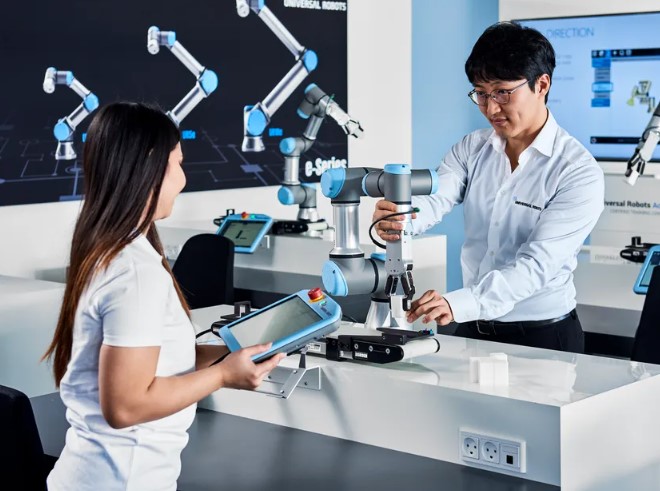Many see the oil industry as conservative, not overly prone to rapid change. However, the truth is quite different. The oil sector is one of the most innovative and is constantly modernizing its technologies and equipment. This trend continues in the times in which we live and is often called the era of the Fourth Industrial Revolution. Although we can hardly imagine oil as a digital product, digitalization in the oil industry is much more present than it seems at first glance.
The fact that the end consumer does not see it with the naked eye, as in the case of retail chains that deliver groceries with a few clicks without going to the store, does not mean that the oil sector is not working on digitalization of its business. On the contrary, the digitalization of oil companies’ operations not only facilitates some daily activities for consumers at gas stations but with its transformation makes a significant contribution in a broader context – ecology, safety, and increasing energy efficiency.
For the oil industry, therefore, digitalization is a much bigger task than creating an application that enables remote payment. It primarily implies technological innovations in oil exploration and production and refining, which is a huge undertaking that requires the engagement of a large number of experts from various fields and significant investments. However, at the same time, oil companies are fundamentally changing their communication with consumers. Here’s how.

How the oil business is being digitized
With most oil companies, digitalization lasts for years, according to plan and in several phases.
We need to start with the process that starts it all – with oil and gas exploration. How is the work on wells digitized, and what are the benefits for the company, the environment, and the safety of people?
In oil and gas exploration, 3D seismic technology has been used for years, making it possible to determine the number of hydrocarbons underground, more precisely, technology that provides information about the existence of oil and gas. The advantage of this technology is multiple: making one or two exploration wells instead of a drastically more significant number and computer simulation of the core, which enables obtaining the contours of the well. In this way, excessive soil treatment is prevented, which was necessary before using these modern computer methods. And the rest of the work on the wells is fully automated. The computer monitors the operation of all wells in all fields, both oil and gas.

Digitization of wells enables all parameters to be monitored in real-time:
- How wells work.
- How much they produce.
- How much oil is in fluids, pressure, temperature, water, compressors, pumps, electricity consumption?
Let’s imagine how much mechanization, human labor, and risk have been replaced by technology in only one segment of the oil business. Not to mention the positive impact on the environment, spared from failed research.
Colleagues especially liked digitization from Prada, so they introduced innovations in pieces of training for young experts who are starting to work in the refinery. The Virtual Reality Simulator, Crane Operator, is designed for operator training that simulates work in a crane operator’s cabin. In this way, activities for work in the refinery area are raised to a higher level, which indirectly additionally works on the safety of refinery processes and employees.

A new reality in business
Digitization of production and other business processes has long been not a matter of fashion but a necessity that enables more efficient and safer business.
The goals of digitalization and the goals of sustainable development oblige us to use all available tools to improve the way we work, become more efficient, and create new values for the community in which we operate.
In other words, digitalization is no longer a business innovation. Still, an established modus operandi, without which it is inconceivable to be efficient in production, environmental protection, and safety at work, as well as business in general.
What is the fastest way to transform a business system that includes several complex business blocks and thousands of employees? Constant work on improving the knowledge and skills needed to implement innovations, making long-term and short-term plans for each business block, defining goals and tools for achieving them, and hiring experts who enable all tasks to be completed successfully and on time. Read more at FutureOn.





